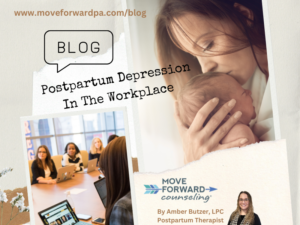Psychological Evaluations for Bariatric Surgery: They Can Feel Intimidating, But Don’t Let Them
Written by MFC therapist Dr. Megan Lavery, PsyD.
Psychological evaluations for bariatric surgery can seem daunting. You may find yourself wondering: Why is this psychologist asking me all of these personal questions? Is she trying to stop me from having bariatric surgery?
Hello! My name is Megan Lavery, and I am one of those psychologists. I have specialized in supporting bariatric surgery patients for almost 15 years. I am passionate about helping patients use psychological evaluations to prepare for surgery from a motivational and psychological perspective.
Understanding Psychological Evaluations for Bariatric Surgery
If you are a bariatric surgery patient coming for a psychological evaluation, it is important to understand that the general goal of this appointment is to identify and help you minimize factors that could negatively impact your outcomes both physically and mentally. During a typical evaluation, your mental health provider will ask questions to assess your history and current patterns across important areas, including:
- your understanding of surgery
- eating patterns
- mental health history
- substance use
- support
- stress/coping.
There are national guidelines that outline psychological requirements for bariatric surgery and guide mental health providers in their recommendations. It is essential that you are open and honest so that your provider can create a plan to support long-term lifestyle changes for you specifically. From my experience, the preoperative period is a valuable time to address factors that have led to weight gain in the past, as well as to change current problematic patterns. Hopefully, this sets you up to be as successful as you can be after surgery.
Recommendations Are Part of the Process
As a Bariatric Psychologist, I often ask myself:
- What recommendations can I provide this patient to assist her in most effectively using the tool from surgery?
- What might this look like?
Let’s look at two examples in the eating domain.
Julia
When asked questions about eating, “Julia” describes often skipping breakfast, snacking throughout the day, and consuming soda daily.
- For Julia, I would recommend that she start keeping a food log to track when and why she is eating.
- I would also encourage her to set small, realistic behavioral goals each week to slowly build new habits. Approaching changes in this way helps to increase motivation and avoid pitfalls related to the typical all-or-nothing mentality driven by diet culture.
Sara
Then we have “Sara.” Sara acknowledges a long history of emotional eating. Upon further questioning, she endorses symptoms consistent with binge eating disorder (a disorder characterized by binge eating episodes with loss of control).
- For Sara, it would be essential that she receive targeted treatment for binge eating disorder prior to surgery.
- This guidance is given due to both clinical experience and research studies.
- In fact, a body of research suggests that loss of control eating before bariatric surgery is predictable of loss of control eating after surgery. Having worked with 1000s of post-surgery patients myself, I have also assisted countless patients whose disordered eating ultimately returned after surgery, often resulting in weight gain.
Ultimately, having bariatric surgery can be a life-changing decision. I love my work supporting patients on this amazing journey. I am happy to help you as well, whether you need a psychological evaluation, want to address disordered eating, or simply desire support from someone who has “seen it all.” To health!
Resources and Links
- Eating Disorder Therapy is available from Move Forward Counseling, LLC for binge eating and disordered eating.
- Learn more about Dr. Megan Lavery or schedule an appointment with her for mental health therapy or bariatric evaluations.
- Bariatric (Weight Loss) Surgery: Types & Requirements (clevelandclinic.org)
- Psychological Assessment of the Patient Undergoing Bariatric Surgery – PMC (nih.gov)
- www.obesityhelp.com
- theworldaccordingtoeggface





























